//Protestors march from the Colorado State Capitol building through the historically-Black neighborhood of Five Points on June 19, 2020. The march was in commemoration of the Juneteenth holiday. Photos by Esteban Fernandez | [email protected]
Editor’s note: This story has been edited to reflect the recent AP style changes that were made on June 19. The Associated Press has changed its writing style guide to capitalize the “b” in the term Black when referring to people in a racial, ethnic or cultural context. In a blog post released on Friday, Vice President of Standards John Daniszewski said the change conveys a shared sense of history, identity and community among people who identify as Black. “The lowercase black is a color, not a person,” Daniszewski wrote.
Going forward, Ms. Mayhem will follow this style change in stories about the Black community.
Although the annual Juneteenth music festival was moved online this year due to the coronavirus pandemic, the Denver community still came together to celebrate the holiday on June 19.
Generations of activists spoke at a march, which started at the Capitol building and wound its way through the historically-Black neighborhood of Five Points, organized by the What’s Next Movement. A block before returning to the Capitol, protesters were met by the Brothers of Brass band, which has made an appearance at several previous demonstrations.
The day wrapped up with a rally celebration at Civic Center Park, organized by youth activists and promoted by Denver School Board Director Tay Anderson.
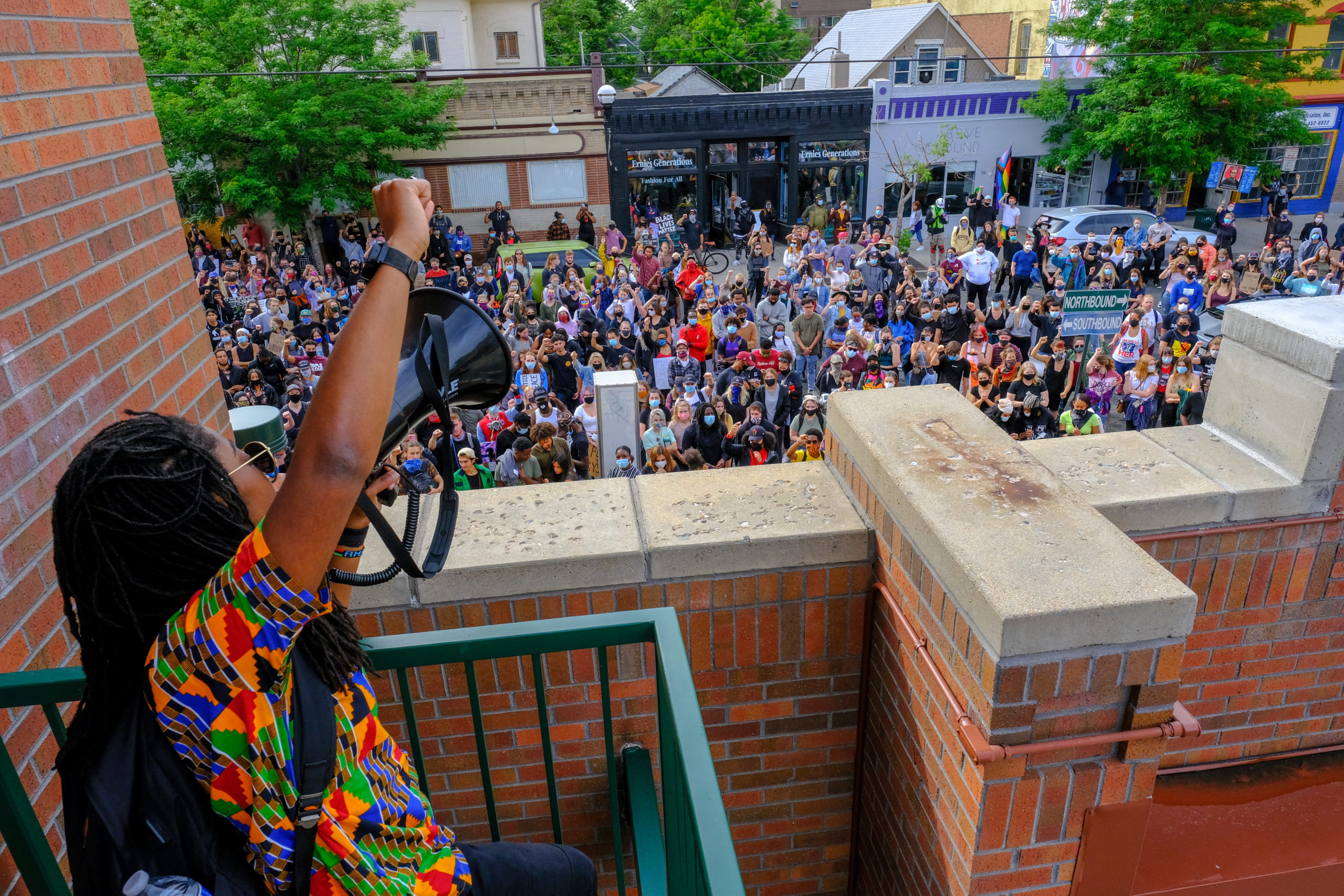
//Janaye Matthews, one of the organizers behind the What’s Next Movement, speaks from the top of Five Points Plaza to attendants of the Juneteenth March in Denver on June 19, 2020.
Juneteenth–also known as Freedom Day or Jubilee Day–commemorates the end of slavery in the United States. On June 19, 1865, Union Gen. Gordon Granger arrived in Galveston, Texas to inform the still-enslaved Black Americans of their freedom. Granger’s announcement came approximately two months after Confederate Gen. Robert E. Lee surrendered and two and a half years after President Abraham Lincoln issued the Emancipation Proclamation.
Today, Denver has one of the largest Juneteenth celebrations in the country, largely thanks to Denver businessman Otha P. Rice, who was born in Texas and moved to the Colorado capitol when he was a child. Rice graduated from Manual High School in 1934 and became a well-known figure in the Five Points neighborhood, according to theDenver Public Library.
Rice organized the city’s first Juneteenth celebration in 1953, according to the library, which carried on through the ’50s and ’60s.
In 1966, another Texas native and Five Points businessman, Al “Big Al” Richardson, picked up the holiday for the neighborhood’s business association. Subsequently, Juneteenth became an annual four-day event. Leroy Smith, the owner of The Rhythm Records and Sporting Goods Shop also had an early hand in organizing the event we have today. Smith was the first Black disc jockey on Denver’s KIMN and KFEL radio stations and an influential member of the Five Points neighborhood.
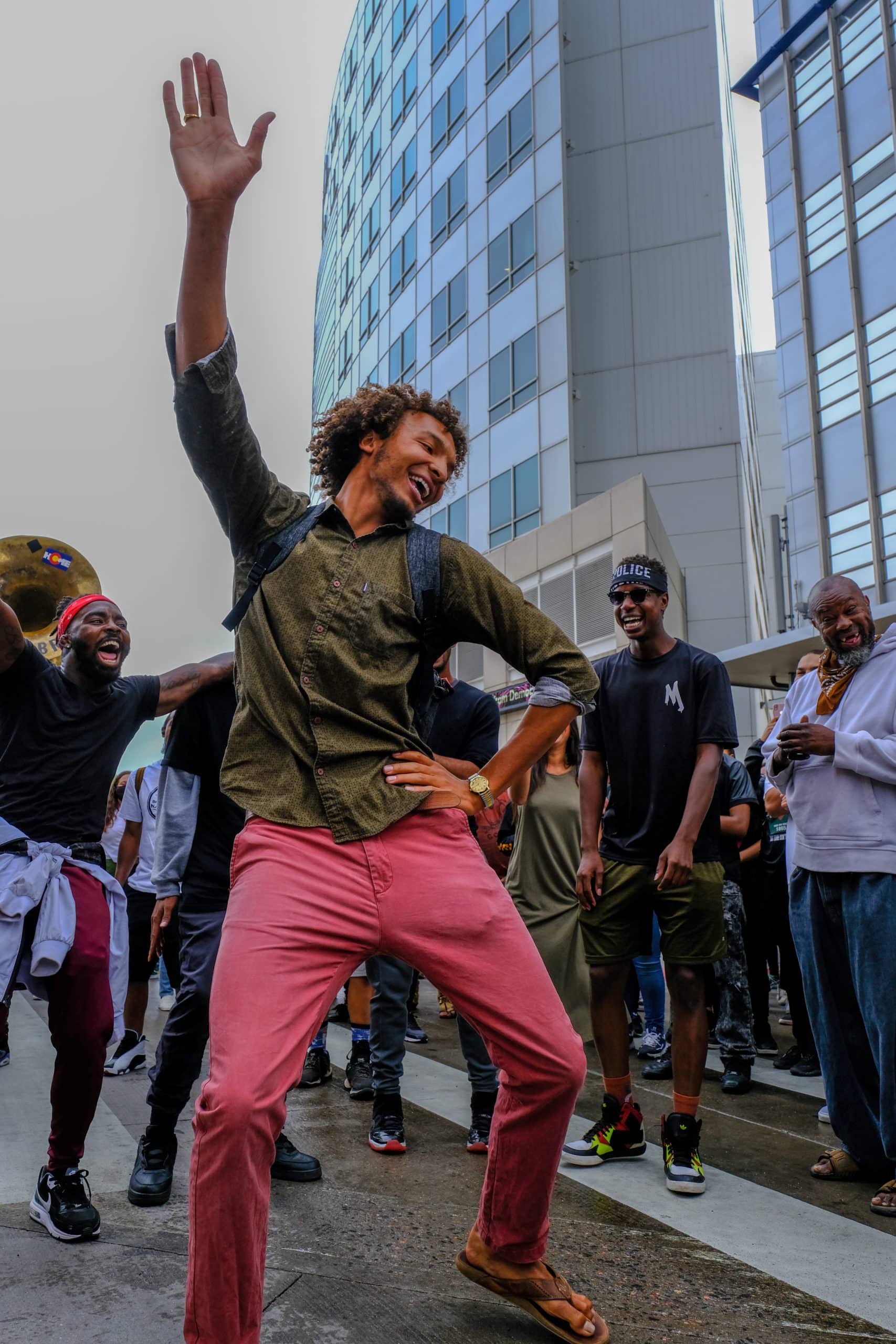
//Cinque Mason dances to the sound of brass music played by Brothers of Brass near Civic Center Station in Denver on June 19, 2020.
Several longtime activists and community organizers were in the audience of the Juneteenth rally at Civic Center Park on Friday, including Candice Bailey, who was one of the original authors of Senate Bill 217. The sweeping police accountability legislation was signed into law this year on Juneteenth by Gov. Jared Polis. Bailey is also an advocate for juvenile justice in Aurora, the state coordinator for the Children’s Leadership Training Institute and a community spokesperson. She wasn’t involved with planning the Juneteenth rally at Civic Center Park but was asked to speak on SB-217–a speech that didn’t happen due to confusion with the organizers.
Bailey said Juneteenth is less of a celebration and more of an indictment of the system that allowed for the continuation of slavery for two and a half years after the Emancipation Proclamation.
“For me, it’s really not a celebration, it is actually getting naked with our own American truth,” Bailey said. “How is it that human beings are not considered human beings? We still haven’t even gotten at the root of this.”
Bailey said the holiday feels like a tiny consolation prize considering what Black people in America have endured for centuries. Because the Three-Fifths Compromise existed in the framework of the Constitution, Bailey said, it doesn’t matter what Black people do to prove their worth. Although the compromise was invalidated by the 13th Amendment and is no longer in effect today, the system was built on the premise that a Black person is not equal to a white person.
“We’re in this treadmill where we want to smile and be appeased by bullshit, and literally that’s what Juneteenth was,” Bailey said. “It was saying, ‘Oh, by the way, two years later, you’re free,’ and everybody wants to party. I’m not partying for that.”
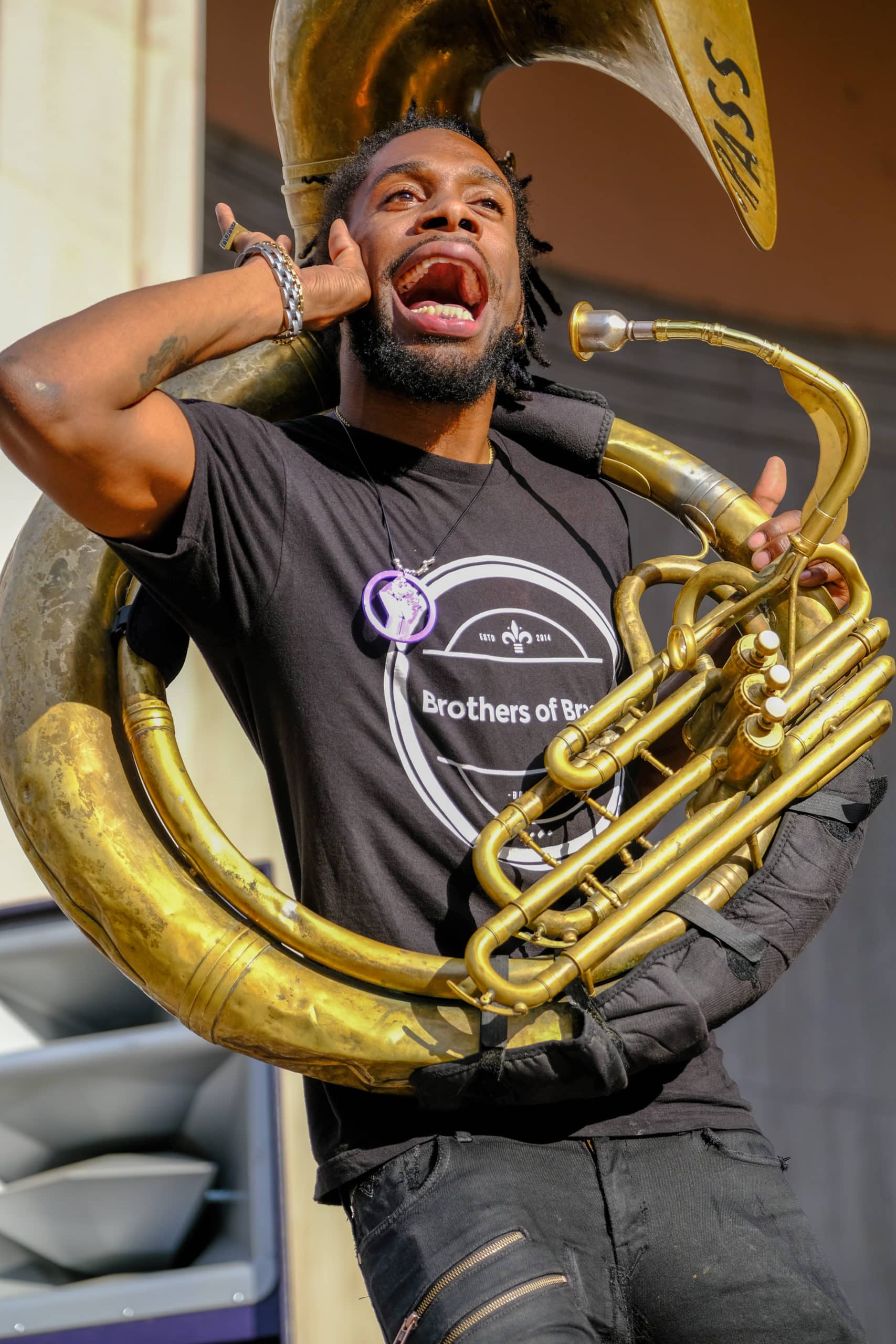
//Khalil Simon extolls the crowd to get louder as they chant “Hands Up, Don’t Shoot,” as part of the refrain to one of the songs that Brothers of Brass play at a Juneteenth rally on June 19, 2020.
Shana Shaw, another Aurora community organizer, stood behind the stage at Civic Center Park with Bailey. Shaw started Compound for Compassion, an organization that provides relief and aid to youth, young adults, seniors and veterans.
Shaw said she’s celebrated Juneteenth since she was a child. She grew up with parents who were entrepreneurs heavily involved in the Black community. Shaw even participated in the Five Points Juneteenth parade on the drill team when she was younger.
“I am very deeply rooted. I was raised in Aurora, and educated and cultured in Denver,” Shaw said. “I had the experience of knowing about Juneteenth ever since I’ve known that I was a Black young child.”
Shaw said one of the things that makes this year’s Juneteenth different–in terms of more people wanting to celebrate or learn more about it–is the current publicity of movements like Black Lives Matter. But the healing in the country, Shaw said, can’t happen until there is full recognition of and reconciliation with the past.
“Yes, we are all holding hands and holding up banners that say [Black Lives Matter], but we have to go back to the root of the problem in order to gain real-life healing, to move forward,” Shaw said. “That’s not going to happen for real until we acknowledge that the reason we even have a holiday like Juneteenth is because we had slavery and that there were people who still didn’t get the message they were free until two years later.”
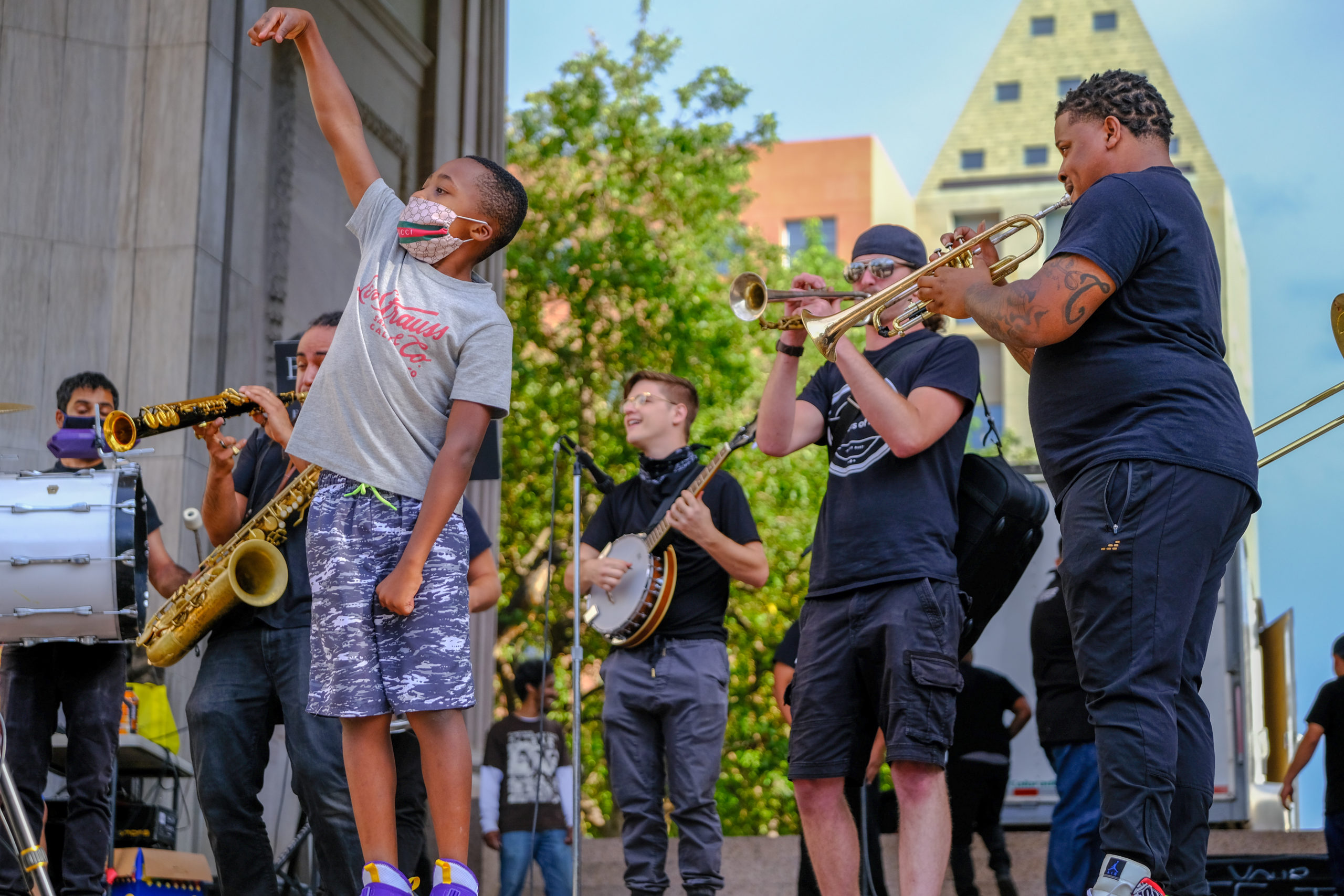
//A young boy takes the stage and dances to Brothers of Brass as they play in Civic Center Park as part of a Juneteenth rally on June 19, 2020.
Terrance Roberts, who founded the youth program Prodigal Son Initiative in Holly Square, watched the performance at the Greek Amphitheater that was a part of the Juneteenth rally at Civic Center Park. Roberts, along with Bailey, was supposed to speak about his work with her on SB 217 before being shooed off stage by organizers.
For Roberts, Juneteenth is a time to come together and remember the history of Black people in the country–not just the time of slavery, but the movers and shakers of political and social change. Unlike Bailey and Shaw, who grew up commemorating Juneteenth, Roberts said he didn’t know about the holiday until his late teens.
“It was not taught to us in school and if I’m being honest I never looked it up myself, but [since then] I’ve always known that Juneteenth was a time of togetherness for Black people and people of color in general,” Roberts said. “So that’s what it’s always meant to me on a personal level, it’s just a time to have awareness of our culture.”
Roberts said he takes the time off to be with his family and reflect on who he is, teaching his kids and the youth that he works with about Black culture, heritage and history. He wants to make sure that the next generation isn’t as old as he was before they learn about the holiday.
“That’s kinda what we’re doing now, is making sure that we’re teaching our history,” Roberts said. “We can’t keep complaining that our history isn’t in school books when those are school books that are printed by the same system we’re fighting. We’re taking this opportunity to do our own teaching.”
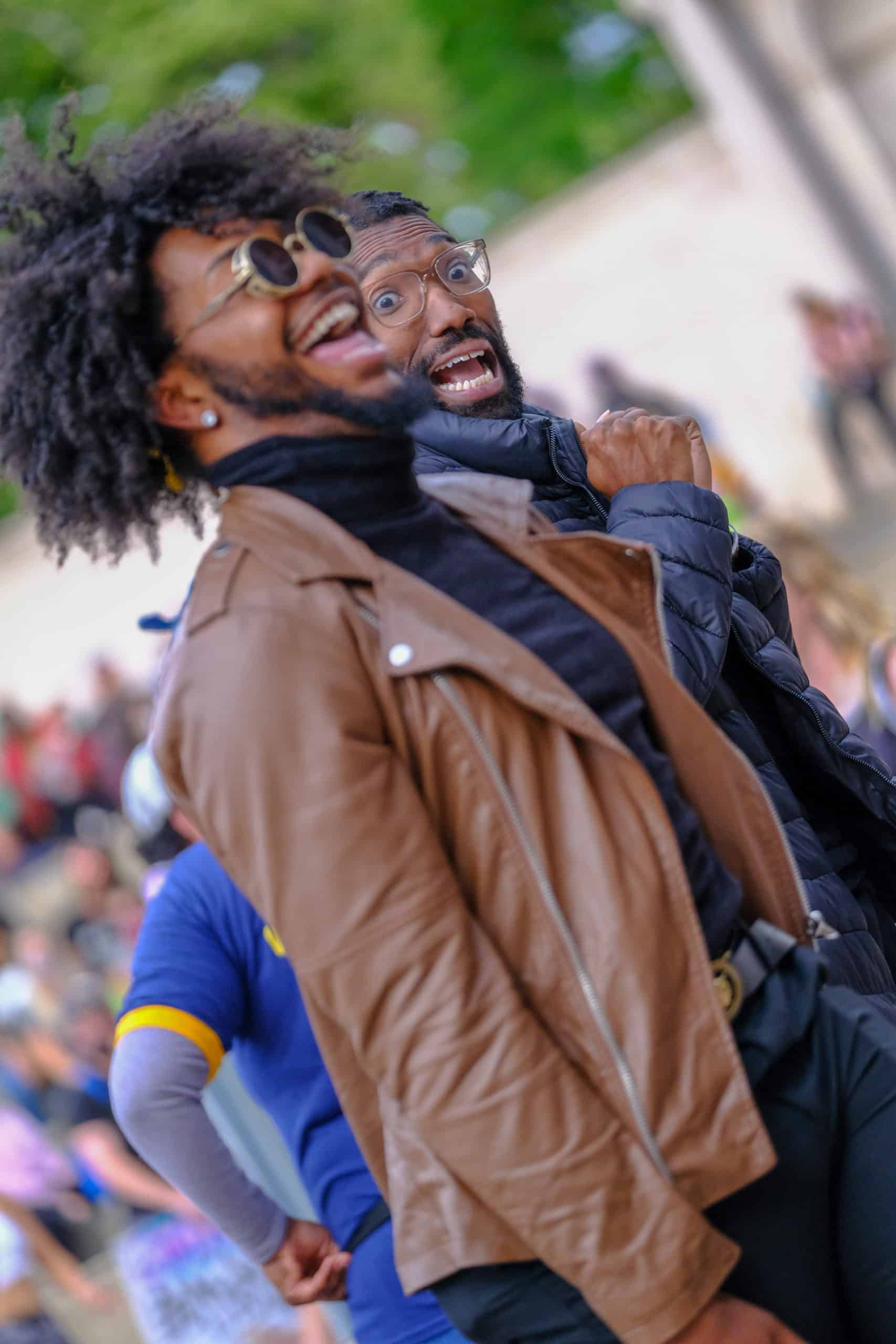
//Darenton Randall and Orin Mozon dance to the music played by organizers of the Juneteenth rally at Civic Center Park on June 19, 2020.

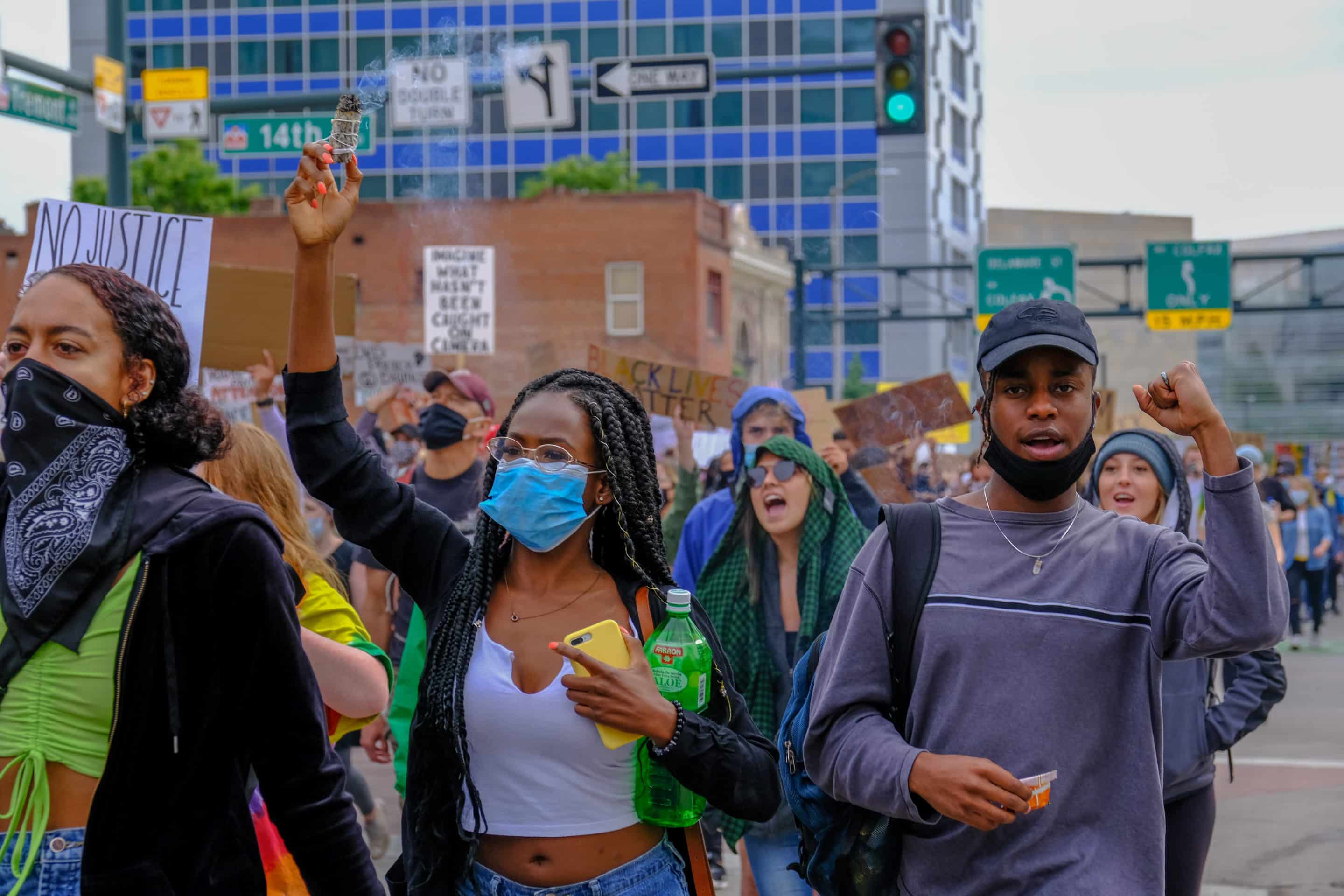

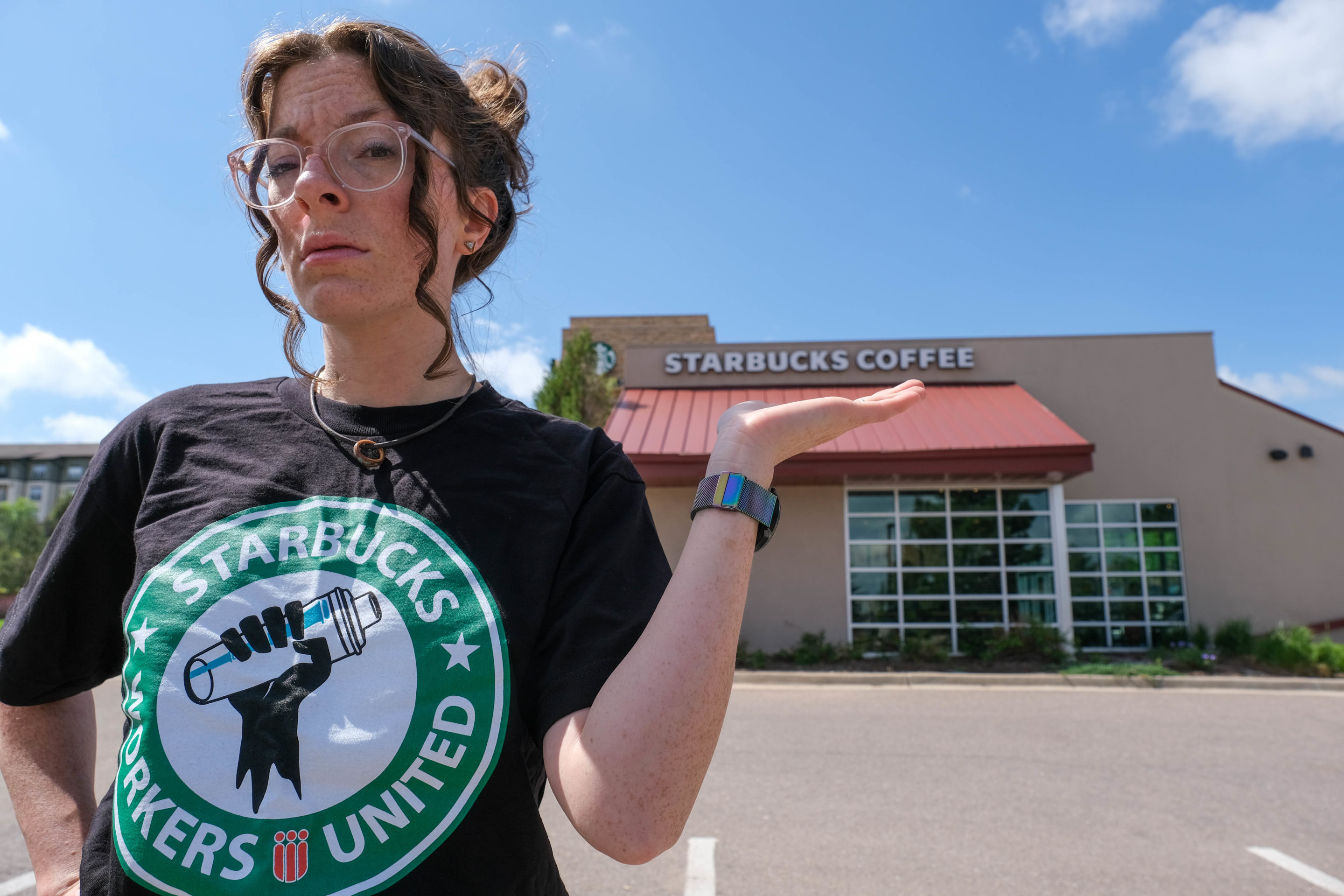
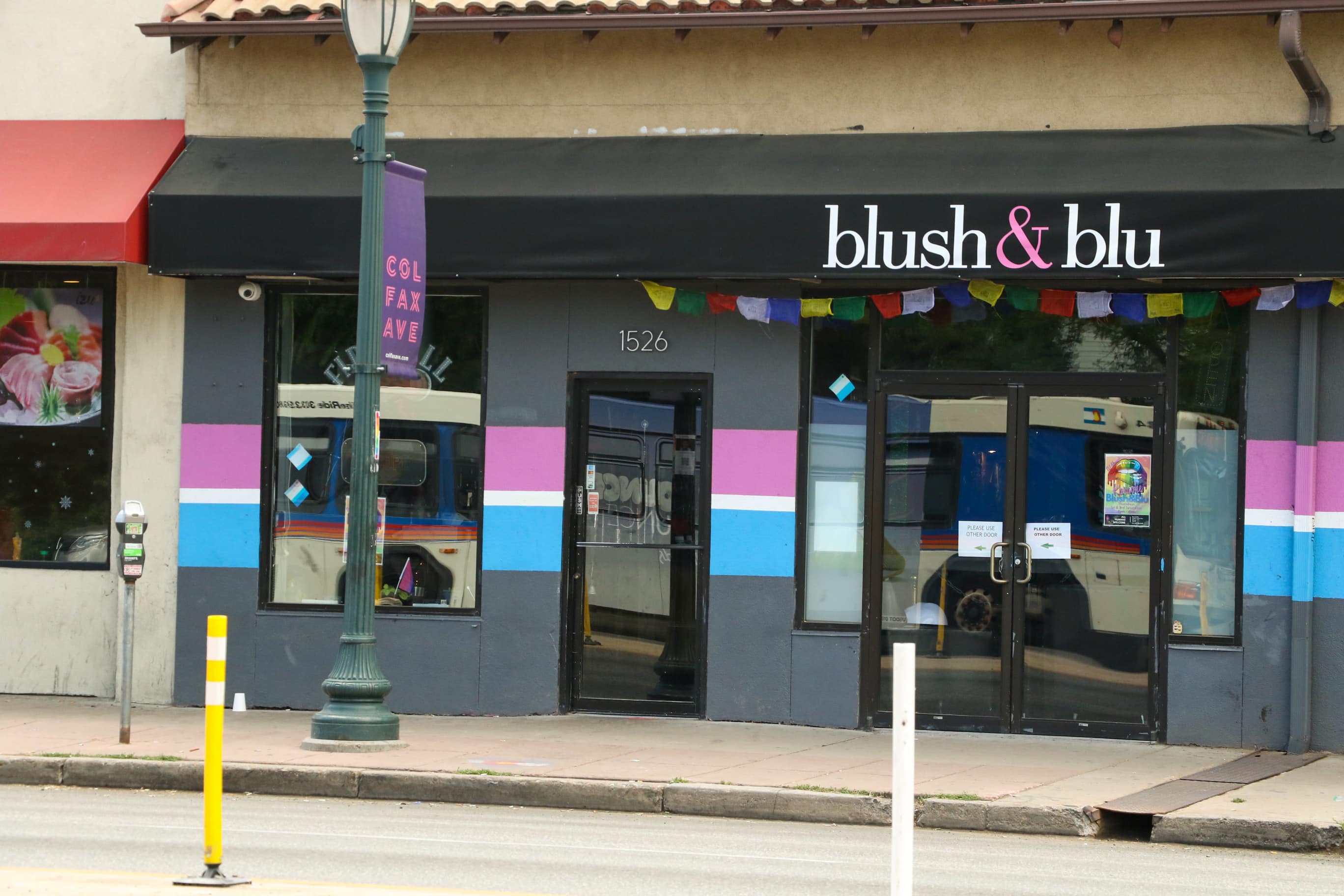
0 Comments